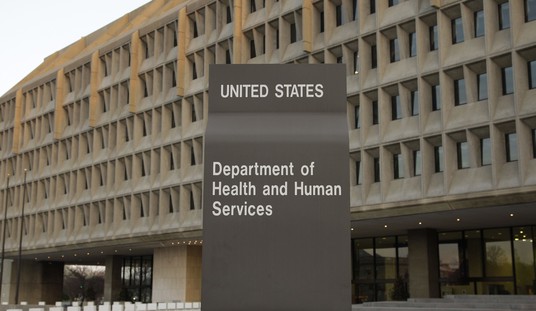Conservatism still wins with the American people — even if conservatives can’t seem to make the sale with them in recent years. According to the latest poll from Gallup, a solid majority of US adults think government tries to do too much that should be left to individuals and the private sector. The trend has remained steady for the last quarter-century, with one exception:
One of the fundamental questions that have divided the U.S. this election year — and, in fact, since its founding 240 years ago — concerns the appropriate role of the federal government. A new update of a longstanding Gallup trend shows that Americans continue to favor a smaller role for government, with 54% saying the government is attempting to do too many things that should be left to individuals and businesses, and 41% saying it should do more to solve the country’s problems.
With a few exceptions, the current results are typical of Americans’ responses since 1992. One exception was in late 1992 and early 1993 as Bill Clinton campaigned for and took over the presidency. At that time, Americans were highly concerned about the economy. The second exception occurred in October 2001, just after the Sept. 11 terrorist attacks, when Americans were focused on the government’s response to the most significant domestic terrorist attack in the country’s history. Otherwise, across more than 40 surveys over 25 years, including the most recent Sept. 7-11 update, the public has tilted by at least a small margin toward believing that the government is trying to do too much.
With this result, why can’t Republicans win with conservatives at the top of the GOP presidential ticket? Perhaps we’ll know that when Republicans actually put a conservative at the top of the ticket. Given the consistent response from the electorate over the last 25 years, it’s remarkable that the one party most oriented toward small-government conservatism has not been able to find a way to take advantage of this consensus.
One interesting note from Gallup’s historical chart: the era of big government may not be over, but it’s not making a popular comeback in the era of Hope and Change, either. Thanks certainly to the Great Recession and the financial-sector crisis of 2008, the entirety of George W. Bush’s administration showed narrower results on this question than Gallup got in Barack Obama’s:

The gaps in the Obama era didn’t get as wide as during the Clinton era — or at least not for a sustained period — but the gaps definitely grew almost immediately after Obama took office. Interestingly, the peak gap got reached before the disastrous rollout of ObamaCare, and it narrowed a bit after the implementation. Either way, this shows that the resurrection of popular big-government progressivism might be greatly exaggerated.
It has been remarkably stable for the past three years, which might seem a bit surprising given the enthusiastic revival of populism in both parties. Populism is, at its base, a leveraging of government authority to balance economic and political power on the basis of class. And yet we’re seeing a healthy level of support for small-government conservatism and no real upward momentum for big government. That’s a mission failure for Obama, and one that might have had a real impact on the 2016 race … if Republicans had nominated a small-government conservative.








Join the conversation as a VIP Member